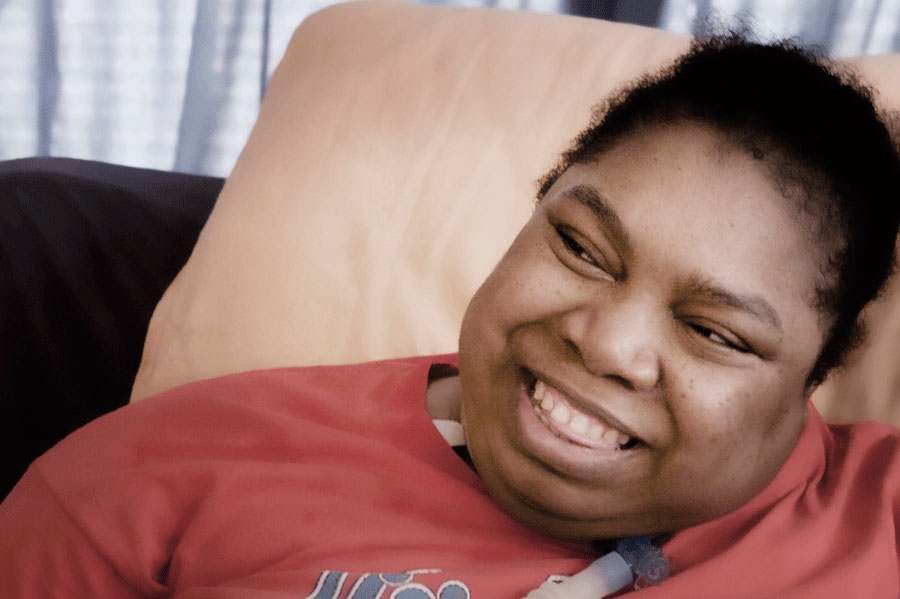Jered Scott Martin from The Point on Vimeo.
Written by Kelsey Osterman
Imagine yourself a little farther down the road of life. After four years of all-nighters, research papers, general education classes and countless cups of coffee from Common Grounds, you stride across the stage to receive your college diploma. You momentarily bask in the polite applause as your sweaty hand tightly grips the expensive piece of official paper. Your heart pounds and excitement floods your body. Nothing can stop you now.
Five months later, that jubilant day is but a dim memory of better times. After enduring numerous interviews, scouring online job listings and racking up an enormous phone bill calling employers, you have yet to find a job. Recent college graduate or not, the fact remains: You are unemployed.
You are not alone. Associate Director of Biola’s Career Development Mark Matthes and Career Counselor Tiffany Lee have a solid grasp on the current job market. They meet with numerous alumni who have yet to find employment six months, one year or even four years after graduation. Matthes and Lee have seen the good, the bad and the ugly of the job market, and their experience allows them to offer insight into the employment situation.
“There’s really never been any situation where you’ve had people go unemployed for such a long period of time,” Matthes says.
More than just simply being unemployed, there’s the growing problem of underemployment as well.
“Underemployment is when people are working fewer hours and for less money than they were before,” Matthes says. “They’d like to work more hours, but they can’t get the jobs that have those extra hours.”
Recent Biola graduate Michelle Rindels didn’t think she would struggle to secure a job after interning for the Associated Press (AP) last summer. As a journalism and Spanish double major, it was the internship of a lifetime for Rindels. Employed as a writing intern for the AP in Los Angeles, Rindels worked with high-caliber professional journalists — including a Pulitzer Prize winner — and wrote stories published in large newspapers. With individual attention, a salary and the likelihood of a job, she was in a position highly coveted by journalism students.
“It was almost to the point where they were guaranteeing me a job during the early part [of the hiring process],” Rindels recalls.
Yet the old adage “too good to be true” remained accurate when the economy began to slide shortly after Rindels started the job interview process with the AP.
“It became more apparent that, as the journalism industry gradually slid downhill during the spring and early summer, there probably wasn’t going to be a job for me,” Rindels says.
Rindels moved in with her parents in Northern California and found herself facing the uncertainty of unemployment. After a few months of searching, she received a job with a small local newspaper. Even though it’s not what Rindels expected, and certainly not her dream job, she hopes that living at home will help her pay off her loans quickly. She also plans to go to Mexico City in the future to teach English and do some freelance writing, with the intention of getting involved with the Latin America branch of the AP.
The current job market, however, is not always the brutal enemy it is portrayed to be. Kari Walton, for example, did not experience the same disappointment as Rindels. When she graduated from Biola with a business accounting degree in May, Walton had already secured a job as a staff auditor with a major accounting firm in Orange County.
Walton acquired the position through a mock-interview process initiated by Biola’s accounting department. After interviewing with one accounting firm, Walton received an e-mail inviting her to an event the firm was sponsoring at Disneyland. Following that, Walton interviewed with the company and was hired five days later.
Walton’s current job stability allows her to look ahead to what her future in the accounting industry might hold.
“Hopefully in five years, I’ll have my MBA and will still be practicing accounting,” she says.
Walton is unsure of her future past that point, but she hopes accounting will still be a part of it. Walton is also considering doing nonprofit work, and she hopes that the knowledge she acquires in accounting will be useful in that.
Entering into the job field straight after graduation is not the only option. Due to the current economy, some students might seek higher education before entering into their careers. Graduate schools abound with education courses suited to any major or area of interest. Biola assistant professor of English Paula Miller, however, cautions students to be savvy about continuing their education.
“Don’t rush into anything,” she says. “Take time to do the research about the schools where you might want to go and the programs that they offer.”
If you find the right program, Miller believes graduate school is far more exciting and rewarding than undergraduate study because you have the opportunity to study only the field that you are passionate about. Miller warns against studying something that is not enjoyable just because it will be more profitable.
“Studying the thing you love will make you rich in ways far beyond anything material,” she says.
Miller adds that there is another way to ease the strain on the wallet while still pursuing your dream career. She did not enroll in grad school until a few years after she graduated and sees her wait as a wise choice for other college graduates as well.
“If you get your bachelor’s degree, get a job in whatever field you’re entering and plan to continue on in that field,” she says. “One economic advantage is that a lot of companies will pay for you to get more training or education.”
Miller sees time between graduation and graduate school as an opportunity to become more established and to solidify a path of study. Going to graduate school is only worthwhile if it aligns with one’s dreams and long-term career goals.
Matthes and Lee offer helpful advice for college students trying to begin the journey toward their ideal profession. They rank being assertive and learning useful technical skills as invaluable for graduates seeking to be hired. Matthes encourages students to assertively call hiring managers in order to arrange interviews. He also believes that it’s essential to master skills beforehand that are necessary for a particular field.
“[Students] might want to take some online classes or training and get familiar with some of those systems so they can be marketable,” Lee agrees.
Students should not wait until graduation to begin preparing for the job market, she says. In today’s economy, scoring a job depends heavily on planning ahead.
“Students need to have a strategy that they’re starting well before they graduate,” Lee states.
That is why Career Development at Biola offers a good four-year career plan to prepare students to achieve their employment goals once they graduate. But Matthes and Lee don’t want students to receive the wrong impression. No number of skills-assessment tests or hours in career counseling can replace real-life experience.
“Employers look at experience more than they look at your GPA,” Matthes says.
Rindels strongly agrees.
“You need to spend your summers in jobs and internships that relate to the career field you want or are something you would want to put on your resume,” she says.
During her college career, Rindels researched, held several different internships and utilized the AP’s recruiter visit to secure her prestigious internship.
“You need to do a lot of preparation to know how to launch into a career,” she says. “A lot of students go into ‘autopilot’ — they do all their coursework and get good grades but don’t have a clue as to how the job market works.”
Even with extensive preparation and planning, college graduates may still find themselves unemployed after graduation. But based on her experience, Rindels can put a positive spin on a less-than-desirable situation.
“It’s not the worst thing in the world,” Rindels says. “Use that time to prepare yourself to launch into something even better. Use that time to volunteer and just really spend time being with people.”
One of the steps Rindels advocates for current students is being involved in management positions in college. She believes employers look favorably on someone who exhibits leaderships qualities. Rindels was The Chimes editor-in-chief during her senior year, and the responsibilities involved with that position showed employers that she meant business.
Similarly, Walton worked for Associated Students for two years as a controller and the vice president of finance.
“Interviewers think it’s pretty cool when you’re able to tell them, ‘I was in charge of half a million dollars as a 21-year-old,’” she remarks.
To current college students, Walton says, “Make contacts while you’re in college, go to different events that Biola puts on and just get your name out there. Getting contacts is vital. You’re going to have to work for it.”
Matthes and Lee concur, knowing that most college students do not realize how long it actually takes to find a job after graduation.
“Plan for a long haul and have several back-up strategies,” Matthes concludes.





